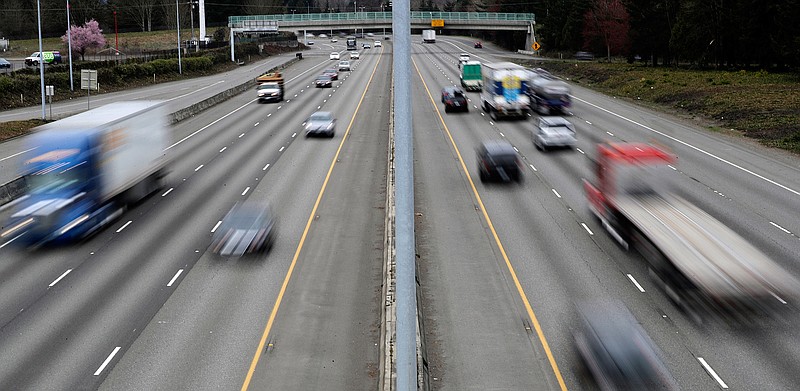SPRINGDALE, Arkansas - Congress needs earmarked federal spending to complete projects like Interstate 49, Rep. Steve Womack told the Kiwanis Club here on Thursday.
"If we're going to complete I-49 in our lifetimes, we need a new bridge over the Arkansas River and about 12 miles of new interstate near it," Womack, R-Ark., told the gathering of about 50 people in First United Methodist Church.
Such a project will get done much faster if individual members of Congress are able to set some of the specific priorities in spending, he said. He and other members of Congress should be allowed to earmark those projects in budget bills, within limits, Womack said.
When finished, I-49 will link Kansas City to New Orleans, running through western Arkansas. Communities all along its route from Bella Vista to Texarkana have sought the project for decades. The gap remaining runs from south of Fort Smith to north of Texarkana.
"I agree with him," said Celeste Williams, Womack's Democratic opponent in last year's general election, who said she watched Womack's speech by video link.
Most federal spending goes to densely populated urban areas, she said.
"We all pay federal taxes, and it's important we invest in rural and under-served areas," Williams said.
Earmarked spending, derided as "pork barrel projects," was eliminated in 2011. Womack voted last week to allow members of Congress to earmark money for local projects under a new, proposed set of rules. These include limits on the amounts available and would require local government entities such as city councils to pass resolutions in support of any given project.
Aside of practical politics, giving up earmarks ceded Congress' authority over spending to whomever is president, Womack said. The U.S. Constitution gives authority over spending to Congress, but eliminating earmarks abdicated that power by making spending a matter of approving or disapproving the executive's proposed budgets, he said.
I-49 has long been a priority for stakeholders along its designated route.
Five years ago, at a seminar in De Queen, Arkansas, The Interstate 49 International Coalition said the overall vision was to create an uninterrupted route from New Orleans to Winnepeg, Canada. The concept originated in the 1980s, and while many stretches of roadway have been completed, some have languished.
Lafayette to Shreveport, La., was the first segment to be completed. The segment between Fort Smith and Texarkana is the biggest breach in the project.
Five years ago, Gard Wayt, Coalition executive director, indicating that the route represented an almost unbroken line running north from Louisiana into Canada. One large segment in Arkansas stood conspicuously unfilled.
"That is right now the route of Highway 71 through Arkansas and we want to make that route part of I-49," he said then, indicating the 150 miles of route yet to be completed.
Wayt said that no matter when the project begins in earnest, it will not happen overnight.
"I don't know a highway of any significance that was ready in less than 10 years," he said.
The I-49 segment that runs from Shreveport to Texarkana took about ten years to complete.
It cost more than $3 billion and opened in late-2014.

